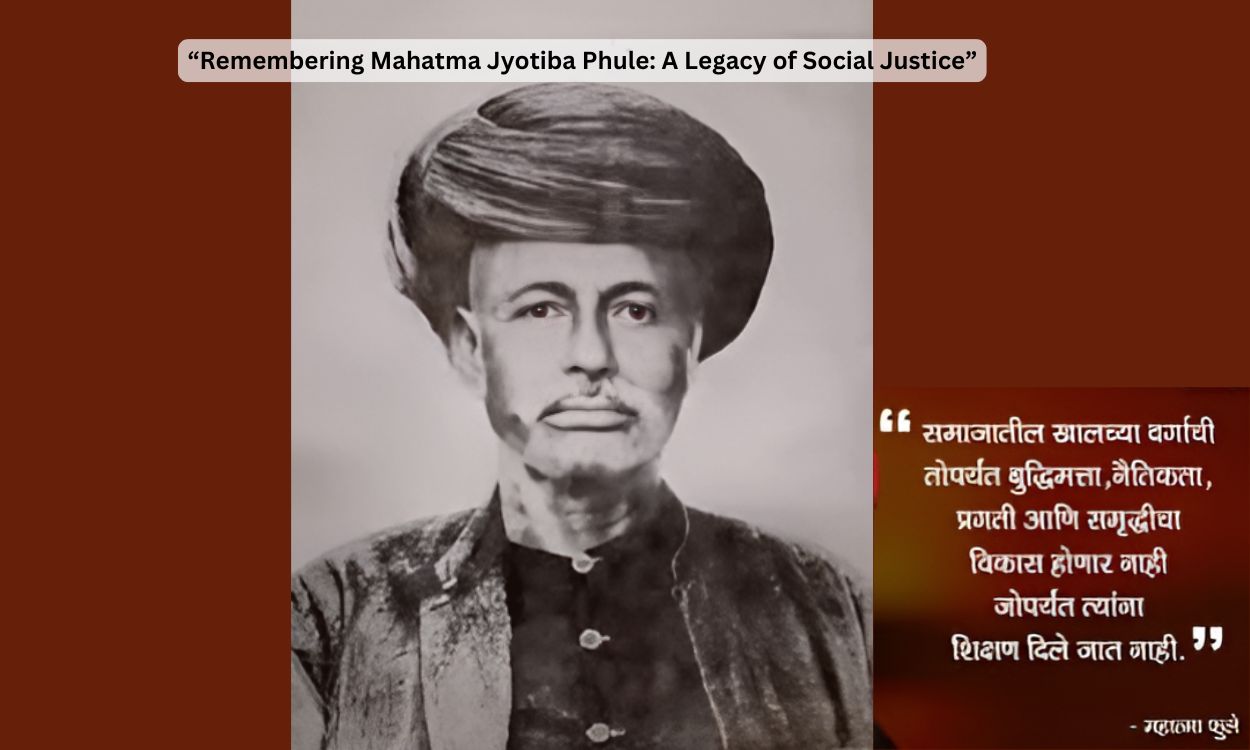Welcome to theustales.com.
Today, November 28, marks the death anniversary of Mahatma Jyotiba Phule, a visionary whose relentless efforts reshaped Indian society. He passed away in 1890 at the age of 63 in Pune, leaving behind a legacy rooted in justice, equality, and education. Phule devoted his life to empowering marginalized communities and dismantling the oppressive caste system. His mission, driven by courage and compassion, continues to inspire generations.
Champion of Equality and Justice
Born in 1827 in a lower-caste Mali family, Jyotiba Phule experienced caste discrimination firsthand. This shaped his lifelong commitment to fighting social injustice. His awakening came early when he witnessed the humiliation of lower-caste people at a Brahmin wedding. This event fueled his determination to challenge societal norms that dehumanized vast sections of the population.
You may Also Like:
Chennai School Holiday Alert: Cyclone Fengal Causes Shutdown in Multiple Districts
Advocate for Women’s Education
Jyotiba Phule and his wife, Savitribai Phule, championed education for women and the oppressed. In 1848, they established the first girls’ school in Pune, defying intense opposition from conservative forces. Savitribai became India’s first female teacher, courageously leading the fight for gender equality. Together, they also provided shelter for widows and orphans, offering them dignity and hope.
Founding the Satyashodak Samaj
In 1873, Phule founded the Satyashodak Samaj (Society of Truth Seekers) to promote social equality. The organization sought to eradicate caste-based discrimination and religious orthodoxy. Satyashodak marriages, free from Brahmin rituals, became a hallmark of this movement, emphasizing equality and human dignity.
Advocate for Farmers and Economic Reform
Jyotiba Phule also addressed the economic exploitation of farmers, especially those from lower castes. He criticized unfair taxation and suggested irrigation projects to alleviate agricultural distress. His work aimed at ensuring that farmers, who formed the backbone of India, had the resources to lead better lives.
A Bold Critic of Caste and Colonial Rule
In his seminal book, Gulamgiri (Slavery), Phule compared the oppression of lower castes in India to American slavery. He denounced both the caste system and British colonial policies that ignored the plight of the poor. Though he acknowledged British rule’s role in introducing legal protections, he demanded better education and economic policies for the lower castes.
Enduring Legacy
Jyotiba Phule’s work inspired later leaders, especially Dr. B.R. Ambedkar, who shaped India’s Constitution. His use of the term Dalit to describe the oppressed laid the foundation for modern social justice movements. Institutions like the Mahatma Phule Museum in Pune honor his contributions. His writings and activism continue to resonate, reminding society of the importance of equality and education.
On his death anniversary, Mahatma Jyotiba Phule is remembered as a trailblazer who envisioned a society free from caste and gender-based oppression. His legacy is a beacon for those striving for justice, equality, and human dignity. Today, we honor not just his memory but the transformative power of his ideas.


Great post. I was checking constantly this blog and I am impressed! Extremely useful information specifically the last part 🙂 I care for such information a lot. I was seeking this certain info for a long time. Thank you and good luck.